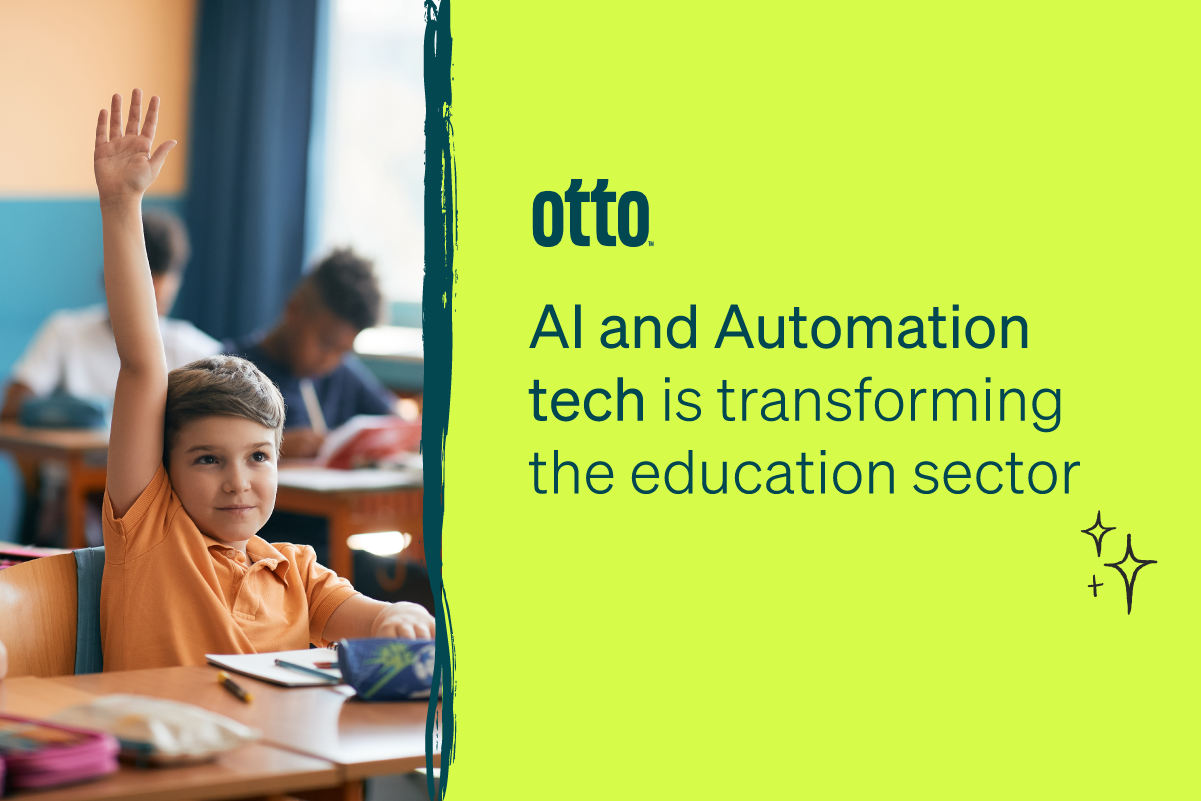The education sector has seen a significant transformation due to the advancements of technology. Artificial intelligence (AI), automation and other technological tools have been introduced and integrated into schools and universities to enhance the learning experience. This transformation is rapidly changing the way students learn and the methods of teaching. In this paper, we will explore how AI, automation and technology continue to transform the education sector through personalised learning, student engagement and performance-tracking, and insights into learning.
Welcome to personalised learning
One of the most significant ways AI, automation, and technology have transformed education is through personalised learning. Traditional teaching methods are static and have been designed for a one-size-fits-all approach. However, AI-based learning systems can deliver personalised lessons for each student. AI can analyse the data collected from each student to identify their unique learning needs and tailor the lessons accordingly. By personalising learning and delivering adaptive and predictive learning experiences, students can be assessed individually and provided with personalised feedback and assessments, helping them to learn at their own pace.
Exceptional learning support
Adaptive learning software is one example of the impacts of AI on education. Adaptive learning software is designed to adjust the content and pace of a lesson based on how a student is progressing. Such software employs machine learning algorithms to analyse student responses, track progress, and automatically adjust the content of the lessons based on gaps and deficiencies. This way, students are offered additional personalised support, which they may not have received from the traditional approach.
Another area of innovation here is the use of chatbots, especially for online and remote students. Education institutions are using chatbots to provide 24/7 support and guidance to students. These chatbots use natural language processing to understand and respond to student queries, helping students to get quick answers to common questions without any delay.
Tracking progress and performance
Student engagement and performance tracking are the other areas where AI and automation are transforming the education sector. With the use of technology, tutors and educators can track students’ progress in real-time and improve their engagement levels throughout the learning process. Gaming elements that simulate challenges and contests can be integrated with computer-based learning platforms, resulting in an uptick of engagement levels. AI-powered learning platforms use chatbots to facilitate student-teacher interaction and generate a more dynamic experience.
Forecasting learning performance to tailor programs
Similarly, predictive analytics tools like learning management systems can forecast students’ performance based on their engagement level, grades, attendance data and other key data points. This enables teachers to identify and respond to potential struggling areas, giving students the opportunity to attain the necessary supplementary support.
By leveraging data that learning tools provide, educators can identify early warning signals that a student is falling behind and initiate early intervention. This is particularly useful for students who have learning disabilities, to provide emotional and academic support, improving their probabilities of remaining in school or seek career prospects.
Practical insights for educators
Lastly, AI and technology have introduced new opportunities for educators to gain insights into learning. Teachers can monitor student progress in real-time and track areas of strength and weakness, as well as adjust their teaching plans and lesson plans accordingly. Educators can also leverage learning data to understand how students learn, the strategies that are effective, and the ones that are ineffective. These platforms facilitate collaboration and communication among teachers as well, enhancing the teaching and learning experience.
Connect with student interests to promote engagement
Moreover, with AI-powered systems, teachers can create learning experiences that cater to students’ interests, learning preferences and cognitive types. Technology is transforming education by providing teachers with a much richer understanding of the student’s behaviour, offering the right support they need and nurturing their interests.
Game-based learning is one area that promotes this. Teachers are using it as a tool to engage students and promote critical thinking skills in the Australian education sector. Many courses use video games, simulations, and 3D animations to teach subjects like Science, Engineering, and Mathematics in an engaging and accessible way. As students engage with the game-based learning, they are learning new skills and developing problem-solving and critical thinking capabilities, for example.
Another key educational technology is virtual reality. VR-based learning allows students to explore different environments, experiment with different scenarios and interact with objects, all from the comfort of their own classrooms. The technology has been used in fields such as Engineering, Architecture, Medicine, and Science to provide a more comprehensive understanding of complex concepts. For example, students exploring geological formations in VR can get a more interactive and engaging experience than from studying photographs or diagrams, helping them to better understand the geography and topography of the earth.
Get the right tech partner to bring in the benefits AND counter the challenges of tech in education
On the flip side, the integration of AI, automation, and other technologies into education systems, has some downsides. One area of concern is data security, as cyberattacks can and do target learning institutions to capture anything from private student data to financial account information. Not only do educational institutions need to set data collection and management policies in line with regulatory guidelines, they also need robust cybersecurity on their network to protect financial and personal data at all times, especially for remote students.
AI, automation, and technology continue to transform the education sector through personalised learning, student engagement and performance-tracking, and insights into learning. Although the integration of new technologies harbours doubts and apprehensions, the benefits outweigh the perceived risks. In particular, the introduction of AI has substantial advantages, enabling students to access customised learning plans, keeping students engaged in their classrooms and providing insights to education on how learning can be tailored to meet students’ individual needs. Education systems that capitalise on these kinds of technological innovations are more inclined to produce tomorrow’s technology specialists that the world so desperately needs.
At Otto, we work with your tech staff and leadership to develop and implement technologies for your budget and sector, setting you up and supporting you with the best tech to deliver exactly what you need. We can supplement your tech department or run it ourselves, supply you with vCIO and consulting services, implement cloud and data management solutions, deliver tech support, implement remote tech solutions, and so much more.
We’ll help you keep tech costs affordable and under control, deliver exceptional client service (in fact, your satisfaction is the ONLY KPI we track), and let you get back to what you do best.



